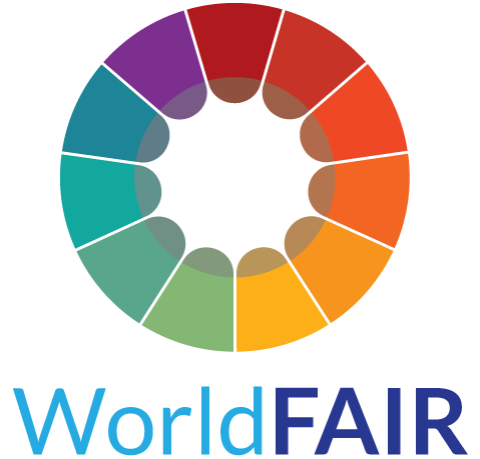 ICRI Side Event, Monday 2 December, 13:00-17:00 Brisbane, AEST (03:00-07:00 UTC)
ICRI Side Event, Monday 2 December, 13:00-17:00 Brisbane, AEST (03:00-07:00 UTC)
Register for remote participation: https://us02web.zoom.us/meeting/register/tZMsfuGvqT0tGdMFct3hKRoyci2ClK051g1o
Research Infrastructures now play a crucial role in providing data products that support interdisciplinary research and address global challenges through the integration and analysis of diverse data. The WorldFAIR project demonstrates that a fundamental shift from the current bibliographic approach to data stewardship to a data engineering approach is required.
In addition to making policy recommendations that call for this fundamental shift, WorldFAIR published the first part of the Cross-Domain Interoperability Framework (CDIF). The CDIF is an emerging set of guidelines around domain-agnostic standards for supporting the implementation of interoperability and reusability of FAIR data, especially across domain- and institutional boundaries. CDIF identifies a set of functional requirements and makes recommendations for addressing these based on widely used and emerging standards.
In this session, we will present the outcomes of the WorldFAIR project, discuss its continuation in a broad set of aligned projects and address how Research Infrastructures can prepare data to better meet communities’ research needs. We will explore the drivers behind this new role, the challenges and opportunities it presents, and the necessary investments in infrastructure, technology, standards, and capacities to support these developments. Most importantly past, present and potential case studies will present their work and discuss the implications for research infrastructures.
Program
- 13:00-14:30: WorldFAIR Phase One
- 10 mins – WorldFAIR Phase One and its objectives (Simon Hodson, CODATA)
- WorldFAIR Phase One: Presentations by 2 of the 11 WorldFAIR Case studies (talks to be a mix of what was achieved and implications for RI investments)
- 10 mins – The Social Surveys Case Study (Steve McEarchern, UKDA)
- 10 mins- The Geochemistry Case Study: (Lesley Wyborn, ANU, ARDC)
- 15 mins – Bringing together the 11 WorldFAIR Case Studies to create the Common Data Interoperability Framework (Simon Hodson)
- 15 mins – Enabling Policy Recommendations from WorldFAIR for Research Infrastructures (Simon Hodson, CODATA).
- 30 min Open discussion (Facilitator – Hamish Holewa, ARDC)
- 14:30-15:00: Afternoon tea
- 15:00-15:45: WorldFAIR Plus
- 10 min – WorldFAIR Plus overview (Simon Hodson, CODATA)
- 15 min – Scientific Drivers for WorldFAIR Plus: The Ambition: Combining FAIR Data Across the Earth Systems Spheres and beyond to support a Sustainable Planet (Tim Rawling, AuScope)
- WorldFAIR Plus Projects: Confirmed and Potential Projects
- 5 mins – Overview of confirmed new projects (Simon Hodson, CODATA)
- 5 mins – Implementing CDIF across multiple Geoscience domains and at scale (HPC) (Rebecca Farrington, AuScope)
- 5 mins – Towards a CDIF for Plant Phenomics (Donald Hobern, APPN)
- 5 mins – CDIF in UKDA/CESSDA (Bonnie Wolff-Boenisch, CESSDA)
- 15:45-16:30: WorldFAIR Plus for You: Round table participant discussions (Simon Hodson, CODATA – Facilitator)
- 5 mins – Introduction to the Round tables on potential WorldFAIR Plus projects
- 40 mins – In your domain, how would you design/promote a need for a case study for WorldFAIR Plus:
- What is a research issue, with a data interoperability or data challenge, in your domain or cross domain that you could address in a WorldFAIR Plus case study
- To enable this, what are the priority (FAIR) infrastructure, data and metadata challenges that you need to address?
- Please describe a project that might undertake which could be a project or case study that you could connect to WF+ based on
- FIPs
- CDIF implementation.
- Report back: What is the research area, what sort of data is needed, what is the interoperability challenge, how would you use FIPs or implement CDIF?
- 16:30-17:00: Report back and next steps forward. (Simon Hodson, CODATA)
